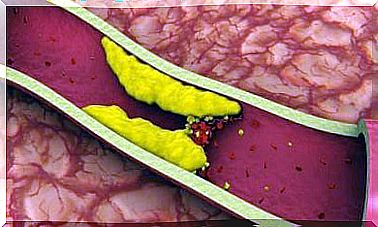Drugs Compatible With Breastfeeding

During pregnancy, the pregnant woman must limit the consumption of medications as much as possible and strictly take those prescribed by the doctor. However, should the same limitations apply when the mother is breastfeeding? Do you know if there are medications compatible with breastfeeding? We will talk about the topic below.
The use of medications during breastfeeding
There is nothing better than breast milk for feeding babies during the first few months of life. There are numerous benefits of breastfeeding for the baby:
- Contains all the nutrients necessary for the correct development of the baby.
- Provides antibodies that protect against infections, diarrhea, allergies and other conditions.
- It’s easy to digest.
- Reduces constipation.
- Promotes good health for life.
Furthermore, breastfeeding also offers benefits for the mother. Among them, it reduces the risk of:
- Breast and ovarian cancer.
- Type 2 diabetes.
- Baby blues.
- Anemia.
- Osteoporosis.

For all these reasons, it is important to make mothers aware that breastfeeding is the best option. Likewise, the mother must understand that breastfeeding should not be suppressed without an important reason.
Thus, taking certain medications is not an excuse to stop breastfeeding. Certainly many women consider that, while breastfeeding, as in the case of pregnancy, everything they ingest can pass on to the baby. They believe that, when taking medication, they should stop breastfeeding.
However, this is a mistake. Few medications interfere with breastfeeding; therefore, it is safe to take them during this period. The physician should be responsible for determining the compatibility of these medications with breastfeeding. So don’t hesitate to consult him.
Also, remember that we often turn to medication to treat discomforts that can actually be overcome without the need to take anything. For this reason, while breastfeeding, it is best to avoid consuming them unless necessary.
What medications are compatible with breastfeeding?

To determine if the medication you are going to take is compatible with breastfeeding, it is best to consult your doctor. However, as we said earlier, most medications can be consumed during breastfeeding:
- The paracetamol does not cause problems. Obviously, as you already know, drug abuse is not recommended. Therefore, it is better not to take them unless necessary.
- Some groups of antibiotics are also compatible with breastfeeding. In this case, the doctor will indicate which antibiotic should be taken to ensure it does not interfere with breastfeeding.
- Insulin won’t cause any problems either. In fact, almost all hormones can be administered during these months, with the exception of estrogen, which can cause a reduction in breast milk production. So consult your doctor about hormonal contraceptive methods if you want to use them.
- At prescribed doses, almost all antithyroids, antiepileptics, antirheumatics, inflammatory bowel disease medications, and various immunosuppressants are also compatible.
- If you need to go to the dentist, be aware that local anesthesia and prescribed antibiotics and anti-inflammatory drugs will also have no influence on breast milk.
What medications can’t I take?
The Spanish Association of Pediatrics indicates that, during breastfeeding, the following are contraindicated:
- Some anticoagulants.
- Ergotamine derivatives for the treatment of migraines, as they inhibit prolactin.
- Antineoplastic.
- Psychotropic drugs.
- Drugs (amphetamines, cocaine, alcohol, etc.).
- Medicines with high iodine content.
- Anticancer drugs.
Precautions regarding the use of compatible medications

Although most medications are not contraindicated, we must always rely on the advice of the doctor who is accompanying us to ensure that there are no problems or risks for the mother or baby.
Therefore, we must take into account that:
- Medicines should not be taken without any precautions. For this reason, if illnesses or discomforts arise that can be overcome without having to resort to them, it is better to avoid consuming them.
- If the baby or mother has a health problem (eg kidney problems, glucose-6-phosphate-DH deficiency), the list of medications compatible with breastfeeding may be much shorter. Therefore, it is essential to consult your doctor.
- You should not self-medicate, either during lactation or at any other time in your life. Avoid using medications not prescribed by a physician.
- Don’t stop breastfeeding unless there is an important reason.
In short, breastfeeding offers multiple benefits for both mother and child. There are medications compatible with this period; therefore consult your doctor to ensure they are not dangerous to allow the baby to continue to benefit from the most natural food available: breast milk.









